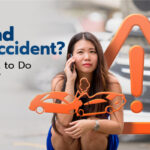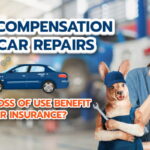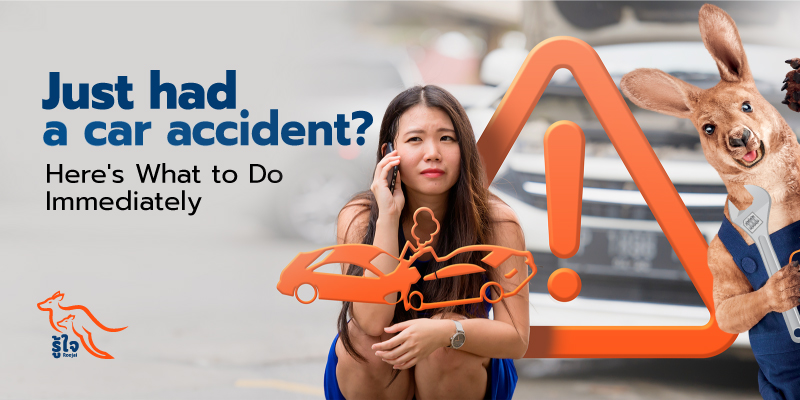
A car accident can be a jarring and unexpected event, occurring at any moment and in any place. In Thailand, the driving environment presents its own sets of challenges that can catch anyone off guard. Knowing what to do immediately after an accident can make a significant difference.
This article will guide you through the essential steps to take, from ensuring everyone’s safety to handling insurance and legal matters. Being prepared can make a difficult situation a bit easier and help you handle everything more smoothly.
Immediate Steps to Take After a Car Accident
1. Stay calm
Try to stay calm and assess the situation. Maintaining composure helps everyone involved feel more at ease and aids in recalling the details of the accident, such as the cause and contributing factors.
2. Check for injuries
Start by checking yourself for injuries, then check the well-being of any other passenger in your vehicle. If you are able, also check for injuries to other parties involved in the accident. Do not move an injured person unless they are in danger of being hit by oncoming traffic. Call emergency services and provide as much information as possible about the accident, including the location, the number of people and vehicles involved, and the injured.
3. Notify the authorities
You should immediately contact the authorities in the case of a serious car accident. An official police report can be essential for insurance claims and legal purposes. The police will document the scene, gather information from all parties involved, and help manage the situation. This ensures there is an official record of the accident, which can be crucial for resolving any disputes that may arise later.
For minor fender benders, it may not be necessary to involve the police. These can often be resolved by exchanging information and handling the situation through your insurance companies.
If someone is injured, immediately call an ambulance or emergency services. Here are the relevant emergency numbers in Thailand to keep handy:
- Police: 191
- Ambulance: 1669
- Fire brigade: 199
- Tourist Police: 1155 (For English assistance)
- Highway patrol: 1193
4. Safely manage your vehicle
Do not move your vehicle in a serious accident. To warn other drivers, place an emergency triangle about 20 meters behind your car or on one side if it is on a curve. If possible, remove any vehicle parts scattered on the road.
For minor accidents, pull over to the left to avoid obstructing traffic and have passengers exit using the left-side doors. If you have pets with you, leave them in the car. Otherwise, if they get loose on the road, they could cause another accident.
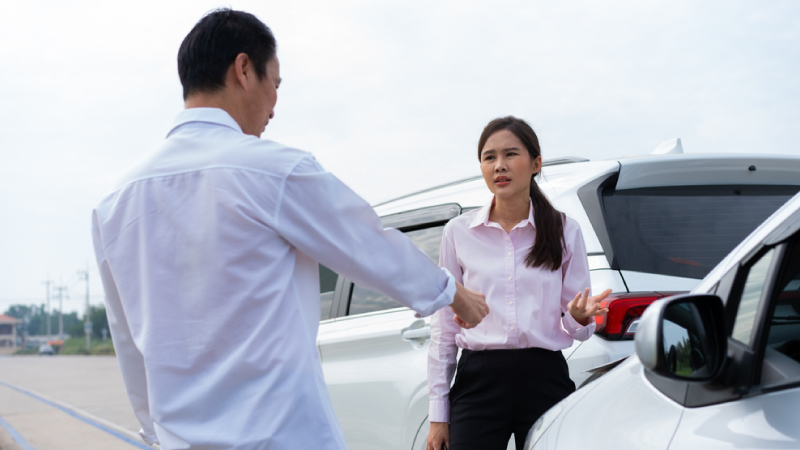
5. Exchange details
After an accident, exchanging information with the other parties involved is crucial to avoid future complications. Some car insurance companies provide pamphlets to keep in your car, listing the details you need to remember. Here are the key details to exchange:
- Your name, address, and phone number
- The address of the car owner, if you are not the owner
- The name and phone number of your car insurance company
- Your car insurance policy number
- Your driver’s licence number
- Your car’s registration number
- The year, make, model, and colour of your car
You must provide this information to those involved in the accident. Additionally, you may need to collect contact information and driver’s licence numbers from any witnesses, as well as the names and phone numbers of any police officers present.
6. Take photos of the accident
You should take photos of the accident scene and any damage to your car. Capture the positions of all vehicles involved and the extent of the damage. Note relevant details such as vehicle speeds, road conditions, weather, visibility, and driver behaviour. Also, check if seat belts were used by drivers and passengers.
If you have a dash cam, save and back up the footage. Dash cam recordings can provide valuable evidence of the accident, capturing the moments leading up to the incident, the impact, and the aftermath. Make sure to save and back up the footage for your record and the insurance company if needed.
7. Keep conversations professional
It’s important to avoid discussing liability or engaging in arguments at the accident scene. Focus on exchanging necessary information calmly and professionally. Only discuss the accident details with the police or your insurance company representative. This ensures that the information is accurately recorded and helps prevent misunderstandings or conflicts.
Dealing with insurance
After ensuring everyone’s safety and gathering all necessary information, the next crucial step is to contact your insurance company. Notify your insurer about the accident as soon as possible. Provide them with all the necessary documentation and information, including:
- Details of the accident (date, time, location)
- Photos of the accident scene and damages
- Police report, if available
- Contact information of other parties involved
Informing your insurance company promptly helps expedite the claims process and ensures you receive the necessary support. To submit a claim, gather essential documents such as the police report, accident photos, and medical reports. Complete and submit the claim form from your insurance company. Follow up with your insurer for confirmation and processing details. Cooperate with the insurance adjuster if contacted and once approved, expect to receive compensation according to your policy.
If you’re a Roojai policyholder, making a claim with us is quick and hassle-free. Use the Roojai Mobile App for an instant video call claim or contact our claim hotline at 02 585 8866.
What happens when you have an accident with an uninsured driver?
If your insured vehicle is involved in an accident with an uninsured vehicle, here are the steps to follow, divided into four cases:
If both parties agree
If the insured car is at fault, it is recommended to call the insurance company to handle the claim at the scene of the accident. If the insurance covers damage to the insured car, the insurance company will issue a claim form for the insured car. For the other party’s car or property damaged by the insured, it will be covered under third-party liability. The other party can use the claim form to contact the insurance company for repair costs and loss of use compensation.
If the uninsured vehicle is at fault and your vehicle has type 1, 2+, or 3+ insurance, your insurance company will handle the repairs. They will then seek compensation from the uninsured driver for damages and medical expenses.
If an agreement cannot be reached
If a car accident occurs and the other party does not have insurance, and an agreement cannot be reached, the car insurance company will act as a mediator to manage the damages. The insured car can be brought to the company’s garage for repairs without worrying about whether the other party will pay for the damages.
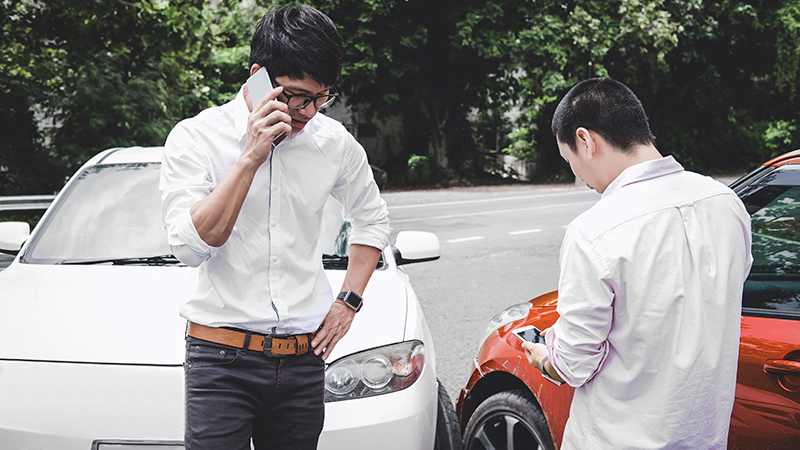
If both parties are liable
If both parties are at fault, the insured party should call the insurance company to open a claim. Each party may agree to repair their own car. In this case, the insured party will lose their good record for the next year, which may increase the insurance premium. The uninsured party must bear all the costs themselves.
If the other party refuses to take responsibility
If the uninsured party is at fault but refuses to take responsibility or pay the agreed damages, you can:
- Use the police report as evidence to file a lawsuit against the other party.
- File a lawsuit within one year from the date you became aware of the violation.
If you have car insurance, the insurance company will handle the legal proceedings. If the other party cannot pay in full, the insurance company may arrange for instalment payments or other forms of settlement.
Car insurance provides essential peace of mind when you encounter unexpected situations on the road. It covers damages on your behalf, as outlined in your policy, and assists in managing compensation claims from the other party. Understanding the coverage conditions of each type of car insurance is essential to ensure comprehensive protection for you, your loved ones, your vehicle, and others involved in an accident.
Roojai offers car insurance that can save you up to 30%, with flexible coverage plans tailored to your needs. Stay updated with the latest news and information on health, cars, motorcycles, and various online insurance options by following Roojai on Facebook at Roojai. You can also add us as a friend on LINE (Official Line ID: @roojai) for more updates and support.

